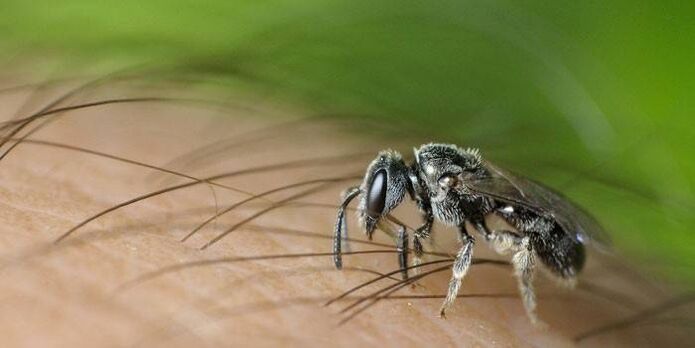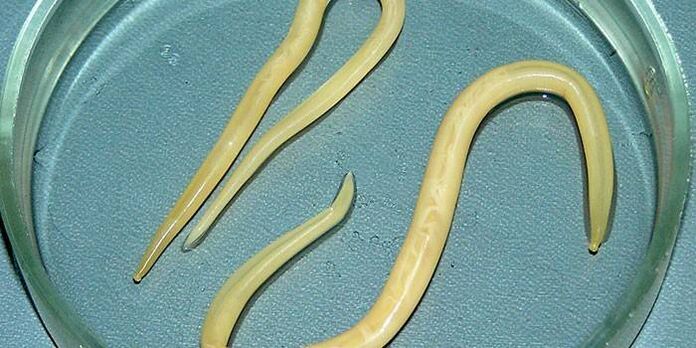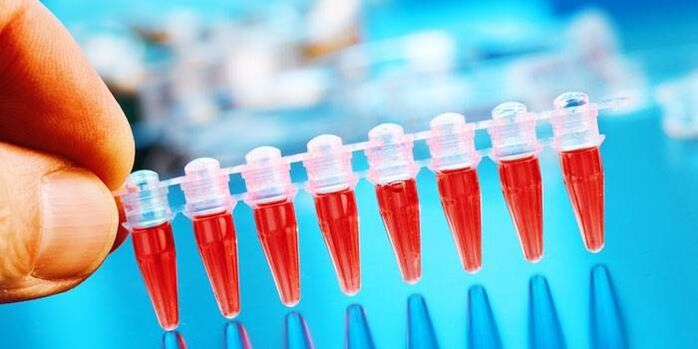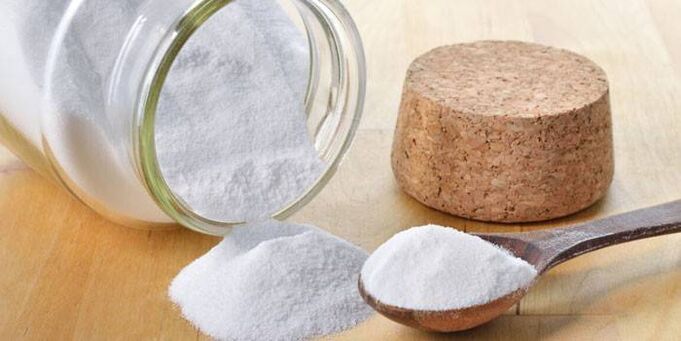There are several signs that a person has parasites in the intestines and there are several ways to treat them. The failure of the internal organ system or a change in the appearance of the stool is already considered an alarm signal to initiate an examination for the presence of parasites. Many people do not even realize that they have worms in their bodies. They are more common in children than in adults. This is due to the fact that babies can put dirty toys and hands in their mouths.
What are intestinal parasites?
Worms in the stomach can exist in the walls of organs in humans and animals. They cause a disease - helminthiasis. The intestines are considered one of the favorite habitats of helminths of different species. In this case, parasites can be found in all departments (small, large, and in the rectum).
Parasites in the intestines are harmful organisms. Protozoa and helminths (worms) can parasitize the intestinal walls. To prevent the appearance of worms, it is necessary to understand how to avoid infection. There are only four main sources of parasite eggs entering the human body:
- insect bites;
- contacts (with a handshake, pinworms are transferred);
- through the ground;
- the use of raw or raw meat, fresh fish dishes.

What parasites live in the human intestine?
For a long period of time, a person may not suspect that he has parasites and the signs may be similar to those of some diseases. Worms often appear in the digestive organs. Parasites live in the human intestine.
- round worm. They parasitize on the walls of the small intestine, causing discomfort in the digestive system and weakening the human immune system.
- Necator and intestinal hookworm. These parasites in the stomach cause hookworm.
- Ugrit. It causes strongyloidiasis. The hepatobiliary and digestive systems are affected.
- wide ribbon. This parasite causes diphyllobothriasis. The worm lives in the walls of the small intestine.
- I had a bull. The helminth causes teniarinhoz.
- schistosomes. These parasites in the rectum are flukes. They can provoke colitis, which leads to appendicitis or sclerosis of the intestinal walls.
- pork tapeworm. The worm causes taeniasis. Violates the work of digestion, causes neurological disorders. Its larvae can affect the intestines, the organs of vision, the brain, the skin.
- vlasoglav. Causes trichuriasis.
- Trichinella. These worms in the intestines contribute to the development of trichinosis in humans. In severe cases of the disease, death is possible.
Protozoan microorganisms, or the main protozoa, that can live on the walls of the human intestines:
- Lamblia. They cause digestive disorders.
- Histological amoeba (dysentery). This microorganism causes amebiasis. The main symptom of the disease is diarrhea.
- blastocyst homni. It harms the body only with a weakened immune system, causing diarrhea and vomiting.

Symptoms of intestinal parasites
If a person has intestinal parasites, this will definitely manifest itself. At the same time, indirect signs of the presence of helminths are often confused with other symptoms of various diseases. You can not self-medicate, but you need to seek help from a doctor. As a general rule, the main symptoms of parasites in the intestines are:
- gases. Helminths, found in the walls of the small intestine, provoke an inflammatory process, accompanied by bloating and gas.
- Constipation. The most popular sign of the presence of worms in the walls of the intestine.
- Diarrhea. It causes parasites that produce hormones that lead to frequent liquid bowel movements.
- weight change. A person in the presence of worms may experience a constant feeling of hunger or a decreased appetite.
- Allergic reaction. Worms in the intestines of the host secrete substances that provoke the release of a high dose of protective cells - eosinophils. All this can lead to allergies.
- Joint and muscle pain. Parasites can move around the body to find a comfortable habitat. They can settle in the muscles, thus causing acute pain.
- Fatigue. A person with helminths often experiences fatigue, apathy, lack of sleep, it is difficult for him to concentrate at work.
- gnashing of teeth. This symptom manifests itself in children during sleep, it is called bruxism.
Diagnosis
It is difficult to identify helminths at first, because the symptoms of helminthic invasion are similar to those of other diseases. Sometimes worms are already accidentally found during operations in the treatment of other diseases. As a rule, the diagnosis of parasites in the intestine includes the following informative methods:
- Serological blood test. Determines antigens and antibodies against helminths. This study is carried out only at a late stage of infection.
- Histological analysis of feces.. Ultra-precise microscopic examination for the presence of parasites.
- Curettage of the perianal area. Helps detect pinworms.
- blood scan. The procedure effectively detects the presence of parasites and fungi.

How to get rid of parasites
A parasitologist must treat a person for worms. More than 10 drugs of modern pharmacology have anthelmintic activity. You can't assign them yourself, because. they have some activity against different types of helminths. To clarify the diagnosis, it will be necessary to undergo a series of laboratory tests. Based on the results obtained, the doctor will draw up an effective treatment regimen.
Worms can quickly appear and multiply in the human body, so it is necessary to get rid of parasites in the intestines as soon as possible. To defeat and drive out helminths, you need to eat more vegetables and fruits. For a while, it is worth giving up meat and fish. You can diversify your diet with spinach, green beans, apples and grapes. Experts advise drinking plenty of fluids. So the cleaning of worms will happen much faster. Useful for humans and yogurt, which includes a high content of lactobacilli.
Medicines for parasites in the intestines
The modern market is replete with various synthetic drugs that provide effective cleansing of the intestines from parasites. Any remedy must be prescribed by a doctor. To choose the right treatment, you must pass a stool test. Depending on the type of worm, the patient may be prescribed anthelmintic drugs for parasites in the intestines.
The effectiveness of therapy against parasites with a properly designed course of treatment reaches an average of 95%. In this case, cases of reinfection are not excluded. After removing the worms from the intestines during the recovery period, the doctor may prescribe drugs for patients to adjust the microflora, which are aimed at strengthening the immune system. For these purposes, enzymatic and bacterial agents, enterosorbents, herbal adaptogens and immunostimulants are often used.
Home remedies
The fight against worms occurs in stages. If the patient's intestines got rid of parasites, then often the general condition of the body can worsen while taking drugs. You can get rid of helminths at home with improvised means or herbs. Traditional medicine healers advise raising body temperature with foods that have a strong (burning) taste:
- Horseradish;
- mustard;
- carnation;
- Red pepper;
- ginger;
- Garlic;
- onion.
Also effective folk remedies for parasites in the intestines are:
- powdered flax seeds;
- a decoction based on pomegranate peels (2 tablespoons should be poured with boiling water);
- Beaver oil;
- enemas from a decoction of wormwood (3 grams of grass should be poured with boiling water, and then filtered);
- a decoction of onion peel;
- lemon and garlic tincture;
- peeled pumpkin seeds;
- carrot juice (preferably freshly squeezed);
- a decoction of tansy (to prepare the product, you will need dried flowers and boiling water);
- a handful of uncooked rice to eat with breakfast.
Cleaning the intestines with soda from parasites.
The use of baking soda (soda) is considered effective in eliminating the problem associated with parasites in the body. Such a product helps to remove the larvae and adults of helminths from the intestines, as well as 80% of toxins and harmful products that enter the digestive tract. The alkaline environment is poorly perceived by the worms, they become uncomfortable, so they leave their habitat. As a rule, cleansing the intestines with soda from parasites is carried out in several stages:
- a water enema is first performed to remove feces;
- then 25 g of soda should be diluted with a liter of warm filtered or boiled water;
- the solution must be administered with an enema;
- it is necessary to withstand the soda composition inside the body for about 30 minutes before defecation;
- then you need to put another enema with water to remove the remnants of alkali and reduce the negative impact of soda on the body;
- the procedure must be carried out every day, until the helminths are completely eliminated;
- soda treatment is considered complete if there are no worms in the feces for two days.

Prevention of parasites in the intestines.
The appearance of helminths in humans, like many other diseases, is easier to prevent than to cure. Prevention of parasites in the intestines, as a rule, consists in maintaining personal hygiene and cleanliness of housing. In order not to experience the discomfort caused by worms, you need to follow the elementary rules that will help protect yourself from parasites:
- do not drink raw water without boiling;
- hands should always be treated with antiseptics or washed with soap;
- it is permissible to use only well-washed vegetables, fruits, herbs;
- you should not swim in a reservoir prohibited by the sanitary and epidemic season;
- daily wet and dry cleaning of the facilities must be carried out;
- Wash hands thoroughly after contact with animals.
- children's toys and other items should be cleaned well after walking on the street;
- do not eat raw fish or meat.

















